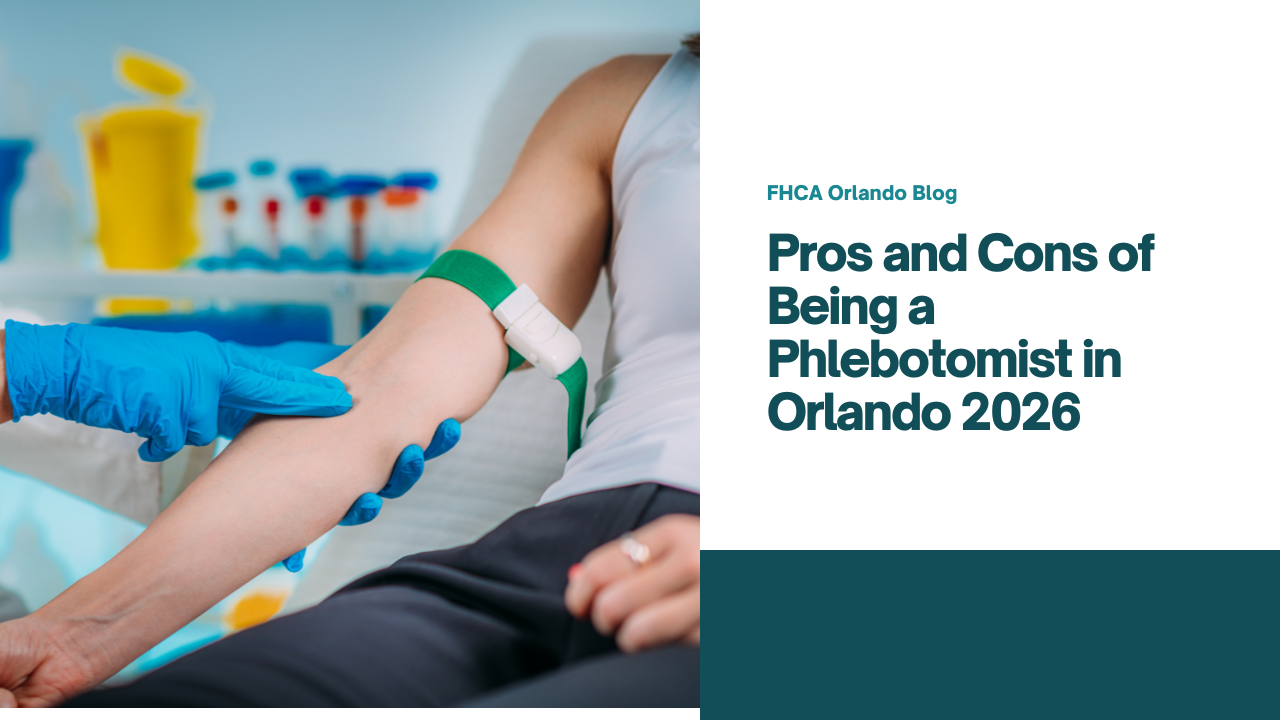Can a PCT Work as a Medical Assistant?
Oct 04, 2025
With appropriate training and certification, a patient care technician (PCT) can transition into a medical assistant role, gaining access to a broader range of responsibilities, higher earning potential, and opportunities in outpatient and specialty settings.
Many of the clinical skills acquired as a PCT, such as taking vital signs, assisting with procedures, and patient interaction, directly align with medical assistant duties, making this career shift both practical and strategically advantageous.
Table of content
- PCT vs. medical assistant: What’s the difference?
- Strengths that students bring from their PCT background
- What students need to make the switch
- Career paths after moving from PCT to MA
- Can a PCT work as a medical assistant? – FAQs
- Ready to move from PCT to MA?
PCT vs. medical assistant: What’s the difference?
At first glance, patient care technicians and medical assistants may seem similar. But their roles differ in scope, duties, and workplace dynamics.
Patient care technicians work in hospitals, rehab centers, and long-term care facilities. Their focus is on direct patient support, helping with daily activities such as bathing, feeding, repositioning, and mobility. PCT's also monitor vital signs, report changes in patient condition, and assist with basic medical procedures under supervision.
Medical assistants, on the other hand, work primarily in outpatient clinics. They handle a mix of clinical tasks, like preparing patients for exams, and administrative duties such as scheduling, EHR management, and insurance processing. Students typically train through a medical assistant program Orlando before entering the field.
Also, students can find a detailed comparison in this breakdown of patient care technician vs. medical assistant .
Strengths that students bring from their PCT background
If students're already working as a PCT, we're not starting from zero. Students bring valuable skills that align closely with medical assistant responsibilities.
Transferable clinical skills
Students' ability to take vitals, collect specimens, assist patients, and follow safety protocols is directly applicable in a medical office. Many of the medical assistant skills employers look for, like patient communication and infection control, are already part of your daily work.
Experience that supports the MA role
Being a PCT means students are used to fast-paced healthcare environments. Students know how to follow instructions, support providers, and interact with patients compassionately. These soft skills make transitioning to an MA role smoother and more natural.
What students need to make the switch
While students' background gives them a head start, there are a few steps we’ll need to take before working as a medical assistant.
Certification and training requirements
Most employers prefer medical assistants who are certified. Completing a formal program prepares students for credentials like the CCMA or RMA.
These certifications prove that we’re ready for the blend of administrative and clinical duties required in medical offices. Students can learn how to plan for it by reviewing this step-by-step guide on how to become a medical assistant, which outlines the training and credentials needed to make a smooth career switch.
Legal and professional considerations
In Florida, the scope of practice for medical assistants is defined by law.
Tasks like administering injections or handling patient documentation require proper training and supervision. Becoming a certified MA ensures you meet both legal and professional expectations in outpatient care settings.
Career paths after moving from PCT to MA
Making the move from patient care technicians to medical assistants not only diversifies students' responsibilities. It also opens doors to long-term growth and stability.
Work settings to explore
While PCTs often work in hospitals, MAs are in demand across primary care clinics, urgent care centers, and specialty practices like dermatology or cardiology. These settings offer more regular hours and expanded responsibilities.
Growth and salary opportunities
Medical assisting offers clear potential for advancement. Entry-level salaries often start in the low $30,000s, with experienced MAs earning over $45,000 depending on location and certifications.
With time, students can grow into roles like lead MA, office manager, or clinical supervisor. Specialized certifications also boost earning power and can serve as a bridge to nursing or other allied health careers. Learn more in our guide on medical assistant career advancement.
Can a PCT work as a medical assistant? – FAQs
Can experience as a PCT help in a medical assistant role?
Many clinical skills from a PCT role transfer well and can give students a head start in medical assistant training.
What is the difference between a PCT and a medical assistant?
PCTs focus on bedside care in hospitals, while MAs balance clinical and administrative tasks in outpatient settings. MAs often have more diverse job duties.
Do I need certification to become a medical assistant?
Most employers prefer certification. It validates students' skills and makes them stronger candidates.
What skills should I focus on developing?
Administrative tasks, EHR systems, and patient communication are key. Many PCT clinical skills already transfer well.
How can FHCA Orlando help me make the transition?
FHCA’s medical assistant schooling provides hands-on training and exam prep to help you move from PCT to MA with confidence.
Ready to move from PCT to MA?
Join our Medical assistant program in Orlando that supports you from enrollment to employment.
Enroll now and make your transition with confidence at FHCA.









